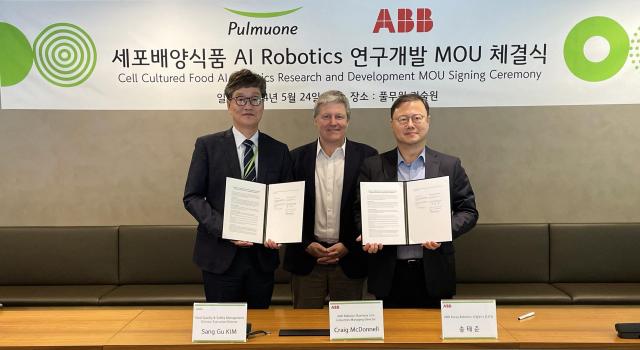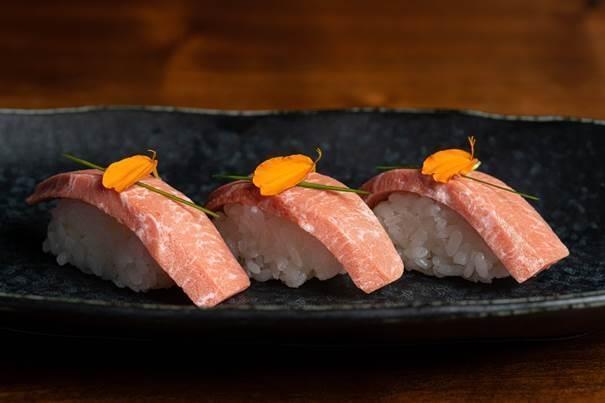
SEOUL, May 29 (AJU PRESS) - Korean food company Pulmuone has signed a memorandum of understanding with Switzerland's ABB Robotics to collaborate in developing technologies for alternative seafood.
The company said Wednesday it will utilize ABB's robotic technology to automate the cultivation process for cell-based seafood products such as fish fillets. Pulmuone aims to establish a mass production system by 2026.
Pulmuone said the partnership will be the world's first case of applying artificial intelligence-based robotic technology to cultured food production.
It is the latest in Pulmuone's expanding technological partnerships to tap into the fast-growing lab-grown meat market.

In 2020, the company signed an agreement with American food tech company BlueNalu for the commercialization of healthy cell-based seafood products without genetic modifications and free of environmental contaminants. The San Diego-based firm specializes in tuna-like fish meat.
Pulmuone is also working with Korean food tech firm Simple Planet to commercialize cultivated meat products targeting vegans and other consumers who avoid meat for ethical reasons.
According to the Korea Agro-Fisheries & Food Trade Corporation, the global alternative meat market is expected to grow to about $11 billion by 2025 from $6.1 billion in 2020.
Alternative food sources are seen as viable solutions for addressing a global food crisis. Industrialized countries, including the United States, France and Austria, have already entered this sector, offering products such as shrimp fries made from powdered seaweed and seaweed-based smoked salmon.
Copyright ⓒ Aju Press All rights reserved.




